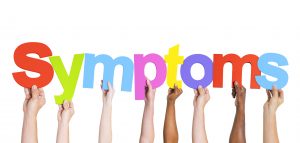There are many signs that could indicate that someone is dysphagic following Acquired Brain Injury (ABI). Some of the indicators of dysphagia are listed below, a person with dysphagia may evidence one or more of these difficulties. Signs and symptoms of dysphagia should be taken seriously and it is important that appropriate referrals for dysphagia assessment are made promptly when dysphagia is suspected. Please note that there can be other causes for some of these symptoms but given the risks to the person with acquired brain injury, the possibility of dysphagia must always be considered.
Signs that may indicate a person has dysphagia include:
- Coughing whilst eating/drinking or in the period following taking food or fluids.
- Choking on food.
- Wet/gurgly sounding voice during or after eating/drinking.
- Changes in breathing whilst eating or drinking or shortly after.
- Discomfort/distress during eating/drinking or immediately afterwards.
- Food/liquid retained in mouth after the person has swallowed. This may be coating the tongue, pocketed in the cheeks, remaining under the tongue, between bottom lip and teeth, stuck to the roof of the mouth or sitting on the back of the tongue.
- Difficulties or discomfort swallowing tablets or tablets remain in mouth after the person has swallowed.
- Loss of food/liquid from mouth.
- Food/liquid coming down nose.
- Sneezing regularly whilst eating/drinking.
- Excessive secretions, drooling, difficulties managing to control saliva, coughing in response to poor ability to control and swallow saliva.
- Limited, weak, unusual, ineffective or reduced range of chewing movements.
- Difficulties initiating movements of chewing and/or swallowing.
- Absence of effective laryngeal movements when trying to swallow or reduced laryngeal movement.
- ‘Tongue pumping’ i.e. back and forward movements of the tongue as the person tries to get their swallow going.
- Person persistently takes notably smaller mouthfuls (though the person may not understand why they are doing it).
- Excessively slow eating.
- The person gets ‘stuck’ whilst trying to eat/drink i.e. stopping required chewing/swallowing behaviours while food/fluid is still in the mouth and the person then struggles to re-initiate appropriate movement.
- Unusual oral or body ‘postures’ affecting ability to chew and swallow (e.g. tongue stuck in an abnormal position, change in tongue shape, pursed lips, extended neck, head turned to one side). Please note that problems of getting stuck in unhelpful postures may be associated with dystonia or some types of medication.
- Perseveration upon movements associated with eating/drinking (e.g. repeatedly lifting cutlery to mouth and being unable to stop the movement, chewing long after food has been adequately broken down).
- Abnormal reflex patterns (e.g. bite reflex, mouth opening reflex, rooting reflex).
- Person goes pale whilst eating/drinking.
- Increased heart rate.
- Finely chopping or mashing food to make it easier to eat.
- Refusing food, pushing food away, not co-operating with assisted feeding (please do not attribute difficulties getting the person with brain injury to co-operate with taking nutrition solely to behavioural difficulties or psychological and psychiatric problems; an assessment of dysphagia should be initiated).
- Weight loss.
- Repeated chest infections.
 Please note that fatigue can have a marked impact on safe and effective eating and drinking. Fatigue can exacerbate the symptoms of dysphagia, and thus the risks associated with it. An individual who has dysphagia may manage well at the start of a meal/drink but begin to experience difficulty as the meal/drink progresses. Fatigue can be a significant additional risk factor affecting not only the person’s physical abilities, but the cognitive abilities needed to support the process of eating and drinking.
Please note that fatigue can have a marked impact on safe and effective eating and drinking. Fatigue can exacerbate the symptoms of dysphagia, and thus the risks associated with it. An individual who has dysphagia may manage well at the start of a meal/drink but begin to experience difficulty as the meal/drink progresses. Fatigue can be a significant additional risk factor affecting not only the person’s physical abilities, but the cognitive abilities needed to support the process of eating and drinking.
Cognitive Problems: Impact on Eating and Drinking